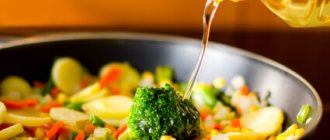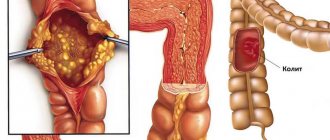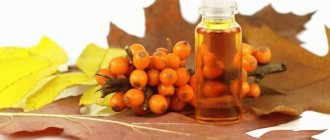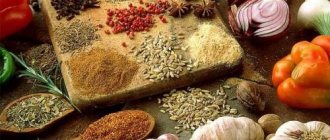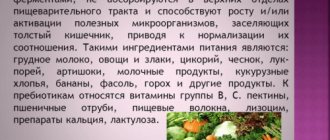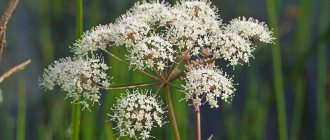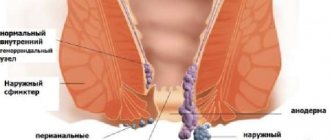Treatment of intestinal dysbiosis with folk remedies
To cure intestinal dysbiosis with folk remedies, it is recommended to add to the diet:
- sage, anise, burnet, eucalyptus, St. John's wort;
- calendula and yarrow, chamomile;
- angelica, mint, flax, marshmallow;
- dill, anise, fennel
Advice! The program for the treatment of intestinal dysbiosis with folk remedies in adults can include honey, propolis, cinquefoil, Jerusalem artichoke, garlic, horseradish.
Buy anise (seeds) on our website
Flaxseed flour or plant seeds in the fight against irrational bowel function
A cleansing composition with flaxseed flour will absorb harmful substances.
According to the folk recipe, a person who undertakes an independent intestinal cleansing will need sunflower oil and flax seeds. These products have a cleansing, softening, dissolving, anti-inflammatory, and enveloping effect. The plant substance stretches the intestines and is a catalyst responsible for the accelerated movement of food.
Flax seeds mobilize motor function, mucus acts as a coating substance. Sunflower oil is an auxiliary component that facilitates cleaning and saturates the body with fatty acids. Specifics of cleansing procedures using flaxseed:
- The correct diet during cleansing procedures consists of plant foods and fish.
- The wellness course lasts 10 days.
- Prohibited: alcohol, sugar, white flour products.
- You can expect the first results in a week; you should not count on an immediate effect.
How to prepare the cleansing composition:
Treatment of intestinal colitis with folk remedies
Treatment for intestinal colitis with medications and folk remedies gives excellent results. The most effective folk remedies for treating intestinal colitis most often include:
- mumiyo;
- propolis;
- collecting knotweed, goosefoot and plantain;
- collection of mint, fennel, caraway, valerian root;
- collection of buckthorn, nettle, yarrow.
- Treatment of intestinal colitis in women with folk remedies
A decoction of raspberry leaves gives a good effect for women. In addition, infusions of fennel, caraway, chamomile, St. John's wort, currants, rose hips and nettle are used.
- Treatment of ulcerative colitis of the intestine with folk remedies
Alternative treatment for ulcerative colitis of the intestine involves the use of:
- chamomile;
- willow bark;
- licorice root;
- sea buckthorn;
- propolis.
- Treatment of chronic intestinal colitis with folk remedies
In case of a chronic course of the disease, you can take herbal decoctions orally, and also do healing enemas with them. The best effect is given by decoctions:
- chamomile;
- St. John's wort;
- bergenia roots;
- nettle and buckthorn bark;
- peppermint;
- licorice roots.
Enemas
Enemas are not a very pleasant, but effective way to rid the intestines of food debris and toxins.
Many people have heard about the use of enemas during cleansing procedures. In addition to experience using this simple device, the following handy tools are required:
- Tip;
- Rubber hose;
- Esmarch mug with stopper;
- A plug having a connecting element.
You need to boil the tip. Boiled water cools down (if you use water at the same temperature as your body, there will be no desired effect, and hot liquid can cause burns). In a position on all fours, an enema is inserted into the anus to a depth of 5 cm; as the intestines fill, 2 liters. water, the tip pulls out on its own. After 10 minutes, bowel movement occurs. This is not a very pleasant, but effective way to rid the intestines of food debris and toxins.
Treatment of polyps in the intestines with folk remedies
How to cure and get rid of polyps in the intestines using folk remedies? One of the methods approved by doctors for polyposis is celandine. This plant can be consumed in the form of decoctions, water infusions, and alcohol tinctures. It is also effective in the form of microenemas and medicinal baths.
In addition, folk remedies for removing polyps in the intestines are:
- spiraea;
- St. John's wort;
- agrimony hairy;
- calendula;
- viburnum;
- sea buckthorn.
Kefir and beets
Beetroot - removes heavy and toxic substances from the body.
These products have a laxative effect, which allows you to remove heavy and toxic substances from the body. Beetroot and kefir have a cleansing effect at an accelerated pace - a couple of days of special procedures are enough to feel the heaviness go away. Kefir prevents damage to the mucous membrane due to its enveloping effect, while the microflora improves.
Beets are a storehouse of nutrients; it contains zinc, iodine, iron, calcium and cobalt. This is an indispensable product for the proper functioning of the nervous and reproductive systems. Fiber, found in abundance in red vegetables, is beneficial for the intestines.
Typically, these products are consumed in pairs for 3 days. Recommended doses – 1 kg. boiled beets and 1.5 l. kefir, distributed over 5 meals. Salad and kefir are consumed separately, with a half-hour break. Eating other dishes is prohibited.
You need to take care of your drinking regime, because water leaves the body with toxins. Therefore, it should enter the body in a daily volume of 1.5 liters. In addition to the health benefits, switching to a kefir-beetroot diet makes it possible to lose 1.5 kg. 9This is important for those who are concerned about their own weight.
Treatment of intestinal inflammation with folk remedies
Traditional medicine recipes for the treatment of intestinal inflammation offer us:
- decoction of aspen bark;
- alcohol infusion of alder cones;
- apple juice with honey;
- propolis tincture;
- sagebrush;
- sage.
Advice! Traditional methods for treating intestinal inflammation include a mixture of carrot and spinach juices, as well as a mixture of beet, cucumber and carrot juices.
Treatment of irritable bowel syndrome with folk remedies
For irritable bowels, treatment with folk remedies relieves symptoms. Try herbal remedies such as:
- chamomile flowers, mint, caraway seeds, fennel, valerian root;
- nettle and plantain leaves, sage, St. John's wort, dried grass, mint, yarrow.
How else to treat irritable bowel, what folk remedies to choose? Recommended herbs:
- horsetail;
- anise;
- buckthorn;
- chamomile.
Bran brewed in milk and a decoction of pomegranate peels also have a good effect.
We cleanse the intestines of toxins using traditional medicine
Cleansing the intestines is a way to combat toxins.
The following factors may indicate that your gut needs a reset:
- Fast fatiguability;
- Reduced attention;
- Frequent acute respiratory infections;
- Drowsiness.
Intestinal function is hindered by:
- Feces;
- Bacteria;
- Undigested food.
We will try to make a selection of effective recipes according to which the intestines are cleansed. Each piece of advice is an effective way to combat slagging and other problems of the digestive tract.
Treatment of the large intestine with folk remedies
Colon diseases have different causes and symptoms. But, as a rule, folk recipes for treating the large intestine include a similar set of herbs. Among them are celandine, St. John's wort, calendula, chamomile, and sea buckthorn. Decoctions can be used either orally or as healing microenemas. The following folk remedies will help treat the large intestine: a decoction of rosehip roots, dill and fennel, mint, anise, thyme and plantain. Medicinal mixtures are also prepared from the same herbs.
You can buy ingredients for home treatment or find a ready-made mixture for the gastrointestinal tract. In our online store we have tried to collect the most effective products that can restore your health!
Buy propolis on our website
Review
Fedorova Galina, 63 years old, Bryansk
A couple of years ago I started having frequent pain in my abdomen, mainly in the lower part.
At first I thought it was something feminine, some kind of inflammation. It turned out that there were problems with the intestines. At the clinic they did an examination and said it was irritable bowel. They prescribed antispasmodics, but they didn’t help me at all. And one day I was in a pharmacy, and a woman there told me to drink weed. You can make separate collections, or you can make direct collections. I dried the nettle and chamomile myself, but I had to buy cumin and valeojana. After 3 weeks of actively drinking decoctions and herbal teas, the symptoms decreased significantly. And now nothing bothers me for a long time!
Recipes against dysbiosis
Manifestations of intestinal dysbiosis are diverse; it is characterized by the following symptoms:
- bloating;
- bowel dysfunction;
- belching;
- rumbling in the intestines;
- bad breath;
- flatulence.
These symptoms are the result of an imbalance in the microflora in the intestine, when pathogenic microorganisms predominate. To eliminate them, traditional medicine is used. To normalize the intestinal microflora, it is necessary to suppress the growth of pathogenic bacteria and improve the growth of beneficial ones. Only after this the condition of the intestines is normalized.
Natural antiseptics, such as plants such as St. John's wort, chamomile and rose hips, will help destroy excess “bad” bacteria. Chamomile infusion also has an anti-inflammatory effect. To prepare it you will need 1 tbsp. l. flowers and a glass of boiling water. The grass is filled with water and infused for 15 minutes. The product is taken three times a day, half a glass.
Rosehip roots are used to treat dysbiosis. They are able to suppress the proliferation of pathogenic microflora. The recipe is as follows: 1 tsp. vegetable raw materials are boiled for 10 minutes in 0.5 liters of water. Take one glass 3 times a day instead of tea. St. John's wort is also known for its medicinal properties. The recipe for its preparation is the same as in the case of chamomile. Single dose 150 ml, frequency of administration – 3 times a day.
Consumption of beans, bananas, and Jerusalem artichoke promotes the growth of beneficial microflora. All fermented milk products are known for their ability to restore intestinal microflora. Natural yoghurts, kefir, ayran, kefir whey, and yogurt are suitable for this.
Dill seeds and fennel fruits will help eliminate discomfort in the intestines. Abnormal bowel movements, characteristic of dysbacteriosis, can be cured with the help of various infusions. So, with diarrhea, an infusion of pomegranate peels or oak bark will help. They have astringent properties. You can get rid of constipation by ingesting a decoction of dill seeds, mint leaves or fennel. These same remedies will help eliminate the manifestations of flatulence.
Read also: Intestinal lavage
Natural antiseptics will help with dysbiosis
Magnesia
Magnesia - actively absorbs toxins.
The following effects are attributed to this drug:
- Antispasmodic,
- Tonolytic,
- Vasodilator,
- Antiarrhythmic,
- Laxative,
- Choleretic.
As a sorbent, the sorbent actively absorbs toxins and removes them. Composition of the product: magnesium salt of sulfuric acid. Indications for use:
Bran
Eating fruits normalizes intestinal function.
Bran is figuratively called a “broom” for the intestines due to its high fiber content. They swell and stimulate intestinal motility. Irritation of the intestinal walls affects the urge to defecate. Bran is useful for the following reasons:
- Absorb toxins;
- Remove toxins;
- Activate digestion;
To get the desired result, you should precede each meal with 2 tbsp. l. bran and a glass of water. No additional manipulation is required: the swollen bran will cleanse the intestines. Do not abuse the indicated dose. This method is designed for a monthly course.
Castor oil
Castor oil provokes contraction of the intestinal walls and sweeps out stale food debris from them.
Intestinal contamination is due to the anatomical features of the organ: food debris is retained in numerous villi. You will need to use products known for their high cleaning properties. Castor oil is excellent for this role.
The use of this product provokes contraction of the intestinal walls and sweeping out of them stale food debris. Cleaning involves observing the following proportions: take 1 gram per kilogram of weight. butter and 2 gr. lemon or grapefruit juice.
Activated carbon
Activated carbon has high adsorbing properties.
This drug has high adsorbing properties. It can affect the absorption of toxins, metal salts, drugs, and glycosides. The use of this remedy is indicated for the following conditions:
- Dyspepsia,
- Intoxication,
- Allergic manifestations,
- Flatulence,
The need to reduce gas formation during endoscopic studies and x-rays.
How to cleanse the intestines with activated carbon? The recovery period is 2-4 weeks. For 10 kg. weight, take 1 tablet, the drug is taken twice a day. Coal has a low cost - from 9 rubles.
Fortrans
This is a popular laxative. The components of the drug are able to retain water and increase the volume of the organ we are considering. Electrolytes are responsible for the harmony of water and electrolyte balance. The drug is not metabolized.
Ingredients: potassium, sodium, macrogol 4000, bicarbonate, saccharin. Indications: used as part of preparatory manipulations before surgery, facilitates X-ray examination and endoscopy procedures. To use as a cleaning element, 3 packets are diluted into 3 liters. water and drink a glass within 3 hours. After an hour, the cleaning mechanism starts. Price – from 500 rubles.
